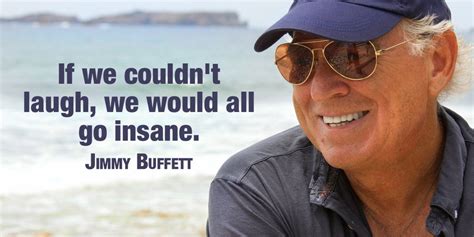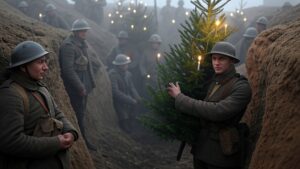SPRINGBORO’S TREASURE TROVE OF MEMORIES
“If it suddenly ended tomorrow
I could somehow adjust to the fall
Good times and riches and son of a bitches
I’ve seen more than I can recall …
It’s these changes in latitudes, changes in attitudes
Nothing remains quite the same
Through all of the islands and all of the highlands
If we couldn’t laugh we would all go insane.”
Jimmy Buffett
Two of God’s greatest treasures in this life are friends and good memories.
I got a full measure of both over the last two weeks visiting (as many of you know by now) with my elderly parents. They still live in the town where I was raised, Springboro, Ohio. During my years there, Springboro—named for the abundant natural springs in the area—was a rural hamlet, originally inhabited by Quakers (it was a stopping point on the underground railroad) and the perfect place for “baby boomers” to be brought up.
Now it is a small city of wannabe elites, fleeing the high property taxes and poor public education systems in nearby Dayton (to the north) and Cincinnati (to the south). The city council has changed the town in their image and today’s Springboro lacks the small-town charm, homespun American values, and personal intimacy it once enjoyed.
“Sigh.”
It is a story, I’m sure, shared by many other communities across the country.
But, ah the memories for those of us who knew the town as it was. Including several of my high school classmates gather for breakfast on the third Thursday of the month at a local Bob Evans Restaurant. Last week was the first time I was able to join them.
The breakfast was quickly dispensed with as were the individual accounts of various physical ailments and doctor’s visits. We all are aging far too quickly. As a sign of the times, the conversation was interlaced, of course, with various stories of those encountering COVID-19.
None of us wore masks.
Then, after dispensing of those unpleasantries, the discussion switched to our high school experiences.
What a wonderful trip down memory lane!
Steven Hoefler sat next to me and I asked him about Truby Amburgy. In high school Truby was our shared heartthrob: a blond beauty worthy of a sailor’s locker pin-up. She and I shared a two-person lab desk in Mr. Mill’s biology class. I helped her with homework and she casually brushed her leg against mine. I considered it more than a fair exchange. Truby went on to be an airline stewardess and married into money. But then came stock market setbacks and poor business decisions. She is also fighting off a number of physical ailments. Steve now takes care of her.
Please keep her in your prayers.
Barry Glass sat across from me at the table. He asked me if I remembered playing basketball inside my bedroom—using a cheap plastic drug store rim and net attached to the door—at the Pence House on Main Street. The question opened a floodgate of memories. Dad and mom rented the large wooden frame house, located in the middle of old Springboro, during my sixth through ninth grade years. What a wonderful place for a boy! The house had a wrap-around porch in front, bedrooms with high ceilings and a fireplace, ornate wooden doorways and mantles, a dumb waiter, an ornate staircase leading up to the second floor (a separate staircase dropped into the kitchen), a large basement with blackened walls (it was formerly where coal was stored), a magical dusty and spider-web decorated attic, and a barn and corncrib behind the house. Plenty of places for a young boy’s imagination to go wild. The house was originally built by the town’s Quaker physician, Doctor Pence. Also, behind the house—across the alley—was the Quaker graveyard. In the side yard I tossed football with dad and set up a croquet course (I would play Dennis Standifer with a wager of 50 cents a game—that was the only way I could afford a hamburger at the drug store behind South’s furniture store up the street).
Barry was a really good baseball catcher in high school. He just lost his father. We laughed about a particular game involving our summer league team, sponsored by the Springboro Lions Club. Laughter is a healing balm. The game we recalled was played under the lights in nearby Lebanon, Ohio. It was a warm summer night. I was on the mound. It was a close game and in the late innings. Barry called for a fastball on the outside corner of the plate, I grooved it right down the middle.
I have never seen a ball hit so hard: it was still going up as it soared over the outfield lights.
Our shortstop, Bruce Smith, had never seen a ball hit that hard either. Before the game, to impress the girls in the stands, Bruce had put a huge wad of tobacco in his mouth, spitting continuously. Once the ball was hit, he swallowed the entire chaw. So as Johnny Supinger trotted around the bases, Bruce was on all fours in the dirt infield, puking his guts out. I can still see the huge African American umpire (did we call him “Pancake”?) bending over Bruce, mixing bouts of laughter with sympathy. Bruce passed several years ago, but the memory—embellished no doubt with repeated tellings over the years—remains.
Some of the others at the table played on that summer league team. My dad was coach and tried to meld us into a championship squad by imposing a Marine Corps-style discipline. Gary Payton, a left-handed outfielder, remembered dad having us duck walk to second base. Sammy Patrick recalled waiting for dad to turn his head so he didn’t have to finish the push-ups.
Then there was Frank Anello.
Frank was not at the breakfast nor has he attended any of our high school reunions (I once invited Frank to attend one of these events. His reply: “I couldn’t stand any of you in high school, what makes you think I want to spend time with you now?”). Frank was probably the best athlete on the team, a switch-hitting outfielder with tons of speed. But he had a chip on his shoulder the size of a sequoia tree; there was some speculation around the table that it was due to his dark complexion and names he was called. Kids can really be cruel to each other. At any rate, dad believed the team should bring Frank into line; so when Frank would pout or refuse to run after a ball, dad would yell: “down to the fence, in honor of Frank Anello.” The team discipline that dad saw work so well during his Marine Corps experience failed completely on Frank. He simply didn’t care what anybody else thought.
Terry Wyant, who sat on my other side, was also on the team. I didn’t recognize him immediately when I walked in. He was sitting with a baseball cap on his head. Terry was the drummer in our band in high school called the “Henchmen.” Chet Heflin played rhythm guitar, Larry Henry on bass (since deceased), Kenny Henry on electric piano (he has disappeared someplace in Florida), and Denny Standifer on lead guitar. Terry remembers the time we played for a dance at Lebanon High School and got into a brawl after the gig when Denny sucker punched someone.
We all talked about Denny. He was a very talented athlete in the younger grades, both basketball and baseball. Then came the accident, a car crammed full of kids smashing into a bridge abutment on Route 48 near Ridgeville. Danny Ulrich had his arm torn off from the impact and bled out: Denny’s neck and part off his spine was broken, he had two metal rods inserted. As you can imagine, the tragedy of the accident and the loss of a life so young reverberated in our small community; Barry says he and his girlfriend didn’t get in the car that night because it was so full.
Those years were full of close calls for all of us: if not from poor decisions made by teenagers behind the wheel then just plain juvenile stupidity. Roger, who sat at one end of the breakfast table, and I had driven through the old familiar haunts a couple days earlier: to the place where we used to test our budding masculinity by climbing metal-frame bridges and peeing off the top (our favorite bridge was no longer there); to the “hump” in the road where Al Stapelton got his father’s Chevy station wagon airborne and it literally broke in half on impact with the drivetrain chewing into the road and tossing us all into the windshield (it was a cold January night and it was a long walk back to town); the Lower Springboro Road where Roger and I bicycled to nearby Franklin’s public library; and, to a farmer’s tobacco fields (the hardest work I’ve ever done).
Earlier that day, Roger invited me to a local veteran’s meeting in Middletown, Ohio. The group is a social action group helping veterans apply for benefits based on their wartime experiences. My best friend from high school, Al Stapelton, was there, recovering from a recent heart attack and thin and emaciated due to ongoing chemotherapy sessions. David Ramey was there also. The group was spearheaded by Dennis Kearns. (Dennis and I sat on the porch behind his house the following week, sharing stories about our Vietnam experiences—Dennis was air-evacuated back home due to wounded hands, he subsequently had a major struggle with PTSD). What a great guy!
Roger and I finished our day at a local sports bar. We swapped stories about places and important people we had encountered in life. Roger had met a number of people in the music industry over the years: I told him about a special early morning jam session in Austin, Texas, where I shared a table with renowned guitarist Stevie Ray Vaughn (he was part of a circle of musicians that gathered after their nightclub gigs were over—they clustered to play music until the wee hours of the morning: absolutely the best music I have ever heard).
Roger and his wife have returned to a place closer to home—his mom recently turned 101—from Phoenix, Arizona. Roger was a missile control technician in the Navy during Vietnam days and parlayed that experience into a successful media communications career: in his living room at Phoenix sits two Emmy awards, for his technical work behind-the-scenes for the baseball playoffs with a major network. For several years, Roger was a mainstay in the truck for Monday Night Football telecasts.
Roger was related to Kermit Lease (now deceased). Kermit was a high school legend for his pranks. At the breakfast meeting, Barry told the story about Kermit spreading chemicals (pilfered from Mr. Mill’s collection) on Mrs. Hilda Watkin’s treasured collection of flowered pots. Mrs. Watkins was affectionately called “Hildabeast” by all of us boys. She didn’t need to ask who was responsible; she just marched Kermit down to the office, Barry was sent later for his role as a silent accomplice. Kermit received several loud swats (vehemently denying his involvement throughout) and Barry received a couple licks as well. Of course, it was Kermit who put the condoms on the water fountains. It was also Kermit who dropped a wad of chewed gum into Mrs. Watkin’s bouffant, heavily hair-sprayed hairdo. She bawled like a baby when she discovered it (the first time I realized Hilda was a real human being). Kermit lived on a farm outside of town and in his dad’s barn hayloft had built a labyrinth-like maze of tunnels. I remember the sheer panic of being lost in one of those tunnels, with hundreds of bales of hay overhead. Roger was there too, in another tunnel.
At our breakfast table, in Kermit’s honor, we all discussed the various swats we had received throughout our school years. It was a lengthy conversation.
A month ago, or so, I attended a presentation about the importance of worldviews. According to the speaker, George Barna, research shows that a person’s worldview—the fundamental filter that guides all of our decisions in life—is fully developed by age thirteen (the process begins at 15 months of age) and that people essentially die with the same worldview. During my visit to Springboro, I realized how important those developmental years were to my worldview: my Midwest, small town ethical values; my patriotic inclinations; my conservative political preferences; and my fundamental Christian spiritual beliefs. (Interestingly enough, Barna’s research shows that a true biblical worldview is the dominant perception of only six percent of the American population, although 51 percent think they act and decide out of it: and the percentages are steadily deteriorating).
During the Springboro years, my spiritual worldview was shaped by at least four events: while playing hide-and-seek with kids as our parents gathered in the community room of the Evangelical United Brethren church on Back Street, I hid under a pew in the sanctuary and experienced the awesome presence of an Almighty God; my mother’s miraculous conversion; the influence of Ms. Jean Stanley in my life; and, my personal salvation experience.
One of the highlights of my recent visit back home was a meeting with Ms. Jean Stanley. Jean is now 90 years old. She was accompanied by her beautiful youngest daughter Stephanie. We met at a park on Route 48 north of Ridgeville. When I was a teenager, I used to pick tomatoes for Bill Hoffman at the very spot we met under a picnic shelter (Bill donated the land to Clearcreek Township and the park is named in his wife’s honor). Jean still has a beautiful head of gray-white hair, smelled of the same perfume I remembered from decades ago, and her eyes brimmed with the spark, feistyness and spunk of someone much younger. Jean played a vital role during my early years. To tell the truth, as a young boy I loved Jean from a distance (like a modern-day platonic love story worthy of Dante with Beatrice or Petrarch and Laura): Jean was a divorcee long before it became socially acceptable, she was mysterious, fiery in temperament, and beautiful. She never crossed the boundaries of propriety. Always, first and foremost, a grand and eloquent lady.
Even after all these years, as she wore her protective mask, needed Stephanie’s help to walk, and with her body weakened by illnesses and a bout with breast cancer, Jean Stanley has lost none of her charm.
My love and admiration for her remains the same now as it was then.
The next day I met with Faithie Shelton and John—her significant other. We exchanged stories about the Ridgeville Community Church years, her family and the “Mudcats.”
During my college history classes—when we discussed the French philosopher and scientist Descartes (of “I think, therefore I am” fame)—I would tell the students about a personal experience. I was in elementary school at the time. Mom and dad stopped to visit old family friends on Lower Springboro Road. Chris Miller urged me to try out his new bicycle. The road had been freshly graveled. As I pedaled down the road, I heard a vehicle approaching. It was a truck. I moved over and the bicycle’s tires hit a pile of gravels along the side of the road. In an instant, I went from full bicycle speed to zero. I was flipped off the bike into the path of the oncoming truck. The driver had no time to react. Time slowed down. I was consciously aware of the truck bearing down on me and then blacked out. I came to briefly as the truck tires were running over my legs. I blacked out again. I was propelled into the ditch by the force of the impact. My next conscious awareness was dad and mom (then pregnant) running across the field toward me. They witnessed the accident from the Miller’s driveway. My legs wouldn’t work. Dad rushed me to the hospital. I spent several months on crutches, soaking in Epsom salt baths in Aunt Martha’s bathtub (she had the only indoor plumbing in the neighborhood), and receiving ultrasound treatments to rebuild my squashed leg muscles.
All that actually happened.
But for my classes I would throw in an additional “what if” wrinkle.
Suppose that after the accident I was hospitalized with major brain damage. Still am. My brain invents a make-believe world for me to live in (in philosophy we call this solipsism, the theory that only one’s mind is sure to exist). I cannot be sure any of my students actually exist once they leave my classroom. Or, for that matter, you.
In my comatose state, my brain creates an entire world to provide a sense of meaning. My mind creates Springboro—the ideal place to be brought up—and an amazing cast of characters along life’s journey, love lost and gained, and a fantastic series of jobs, travels, adventures and experiences…
Ah yes, real or coma-induced, what a ride it has been!




